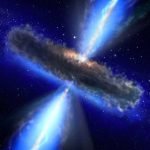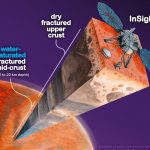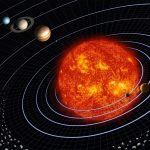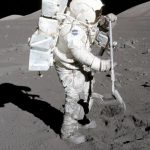Space & Future
Giant dying stars create tiny cosmic dust that could form new planets
A new study shows that some of the largest and most powerful stars in the universe are producing incredibly tiny particles of carbon dust—material...
New method may finally resolve the “Hubble tension” puzzle
Scientists have known for nearly a century that the universe is expanding, with galaxies moving away from each other over time.
The speed of this...
Can Martian soil kill Earth microbes? Water bears reveal surprising clues
Scientists are using one of Earth’s toughest microscopic creatures to explore an important question for future space travel: Could the soil on Mars naturally...
6 million years ago something slammed into modern-day Brazil
Giant impacts on Earth's surface can be cataclysmic events with far-reaching consequences. They can excavate massive craters like the Vredefort Crater.
There's also growing evidence...
Early Mars was warm and wet not icy
A recent study showed that Mars was warm and wet billions of years ago.
The finding contrasts with another theory that this era was mainly...
Moon once had a magnetic field stronger than Earth’s—But only for brief moments
For decades, scientists have debated whether the Moon once had a powerful magnetic field like Earth’s or only a weak one.
Now, a new study...
One of the biggest stars in the universe might be getting ready to explode
One of the largest known stars in the universe underwent a dramatic transformation in 2014, new research shows, and may be preparing to explode.
A...
Stunning new image reveals hidden gas “rivers” at the heart of the Milky Way
Astronomers have captured the most detailed view ever of the center of our Milky Way galaxy, revealing a tangled web of cold gas filaments...
How giant galaxies could form just 1.4 billion years after the Big Bang
When the venerable Hubble Space Telescope made its Deep Fields studies of the early Universe, it discovered something that would puzzle astronomers to this...
Scientists discover Earth-like auroras on Jupiter’s giant moon
Scientists have discovered that the colorful light shows seen above Earth’s poles also occur on Ganymede, Jupiter’s largest moon—and they behave in strikingly similar...
NASA spots a young sun blowing a giant bubble in space
Astronomers have captured the first clear image of a giant “bubble” surrounding a young star that closely resembles what our own sun looked like...
Jupiter’s icy moons may have been born with the ingredients for life
Scientists have found new evidence that Jupiter’s largest moons may have received the chemical building blocks of life at the moment they formed.
The discovery...
Deep Space
Uranus’ moon Ariel had a 170km deep sub-surface water ocean
Interest in icy moons has been growing steadily as they become more and more interesting to astrobiologists.
Some take the majority of the attention, like...
Universe has surprisingly fewer supermassive black holes than we thought
Did you know that at the center of every galaxy, including our own Milky Way, there's a supermassive black hole?
These aren't just any black...
Scientists discover vast underground water on Mars
In an exciting discovery, scientists have found evidence of a massive underground reservoir of water on Mars.
This reservoir is so large that it could...
Scientists find new superhighway system in the Solar System
Researchers have discovered a new superhighway network to travel through the Solar System much faster than was previously possible.
Such routes can drive comets and...
Scientists develop dustbuster for moon astronauts
Future moon astronauts may one day be able to step into an electric-beam shower to clean sticky dust off of their spacesuits and equipment.
A...





















